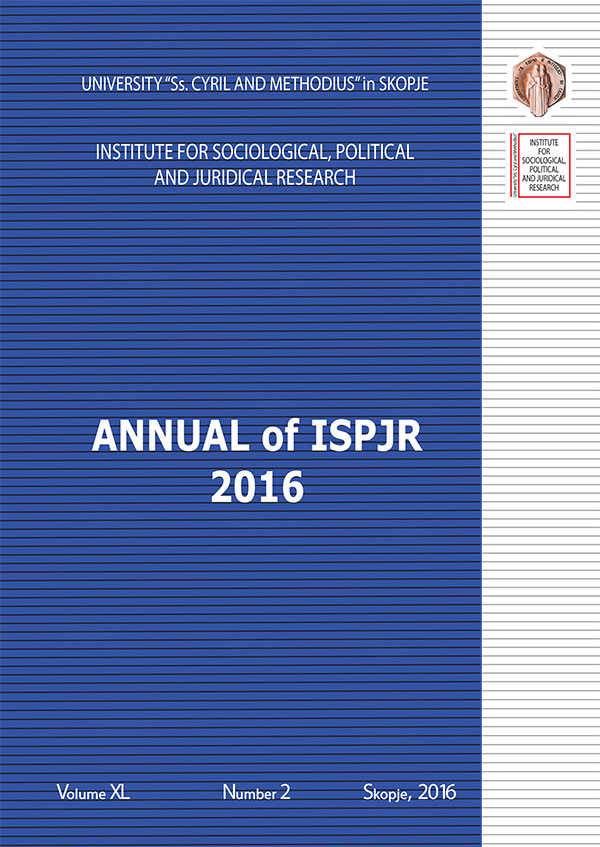COMPARING MACEDONIAN AND AUSTRIAN STUDENTS’ PERCEPTION OF IDENTITY ASPECTS AND COLLECTIVE IDENTITY
COMPARING MACEDONIAN AND AUSTRIAN STUDENTS’ PERCEPTION OF IDENTITY ASPECTS AND COLLECTIVE IDENTITY
Author(s): Marijana Marković, Eleonora SerafimovskaSubject(s): Education, Psychology, Government/Political systems, Politics and Identity, Identity of Collectives
Published by: Институт за социолошки и политичко-правни истражувања
Keywords: comparative study; aspects of identity orientation; social groups; non-EU country - Macedonia; EU country - Austria;
Summary/Abstract: This research was focused on the association between aspects of identity orientation and collective identity among students in Macedonia and Austria. The survey in Macedonia was conducted among Macedonian and Albanian state university students, and in Austria, it was conducted among students from the Department of Political Science and Sociology at the University of Salzburg. The same methodological procedure was applied: orientation towards two aspects of identity - Personal aspect of Identity (PI) and Social aspect of Identity (SI), measured with the AIQ (Aspect of Identity Orientation) Scale. The collective identity was run through a grid of one scale (according to Laponce): importance was given to each of 13 social groups, such as: family, friends, gender, age, profession, religion, preferred political party, place of birth, residence, university, ethnicity, class, an citizenship. According to the results on the PI and the SI scales, four groups of respondents were obtained. The first group, termed “Integrated”, was the group with high scores on both scales; the second group, termed, “Ego-oriented”, had high scores on the PI scale and low scores on the SI scale; the third group, “Pre-defined”, presented individuals with low scores on both scales, and the last group, “Over-socialized”, was the group that had high scores on the SI scale and low scores on the PI scale. The main topic of research was the importance that each of these four groups (in a Macedonian and Austrian context) assigned to the collective identity. The comparative study underlined some important issues: family and friends are the first and second most important social groups for the four groups in both samples; in both samples, the “Integrated” group places the highest importance to the collective identity; the collective identity is mostly predominant among the Macedonian students, and, no matter how much personality is integrated, the least important group for the Austrian sample of students is religion, while for the Macedonian sample of students - political party.
Journal: Annual of the Institute for Sociological, Political and Juridical Research
- Issue Year: XL/2016
- Issue No: 2
- Page Range: 23-35
- Page Count: 13
- Language: English

